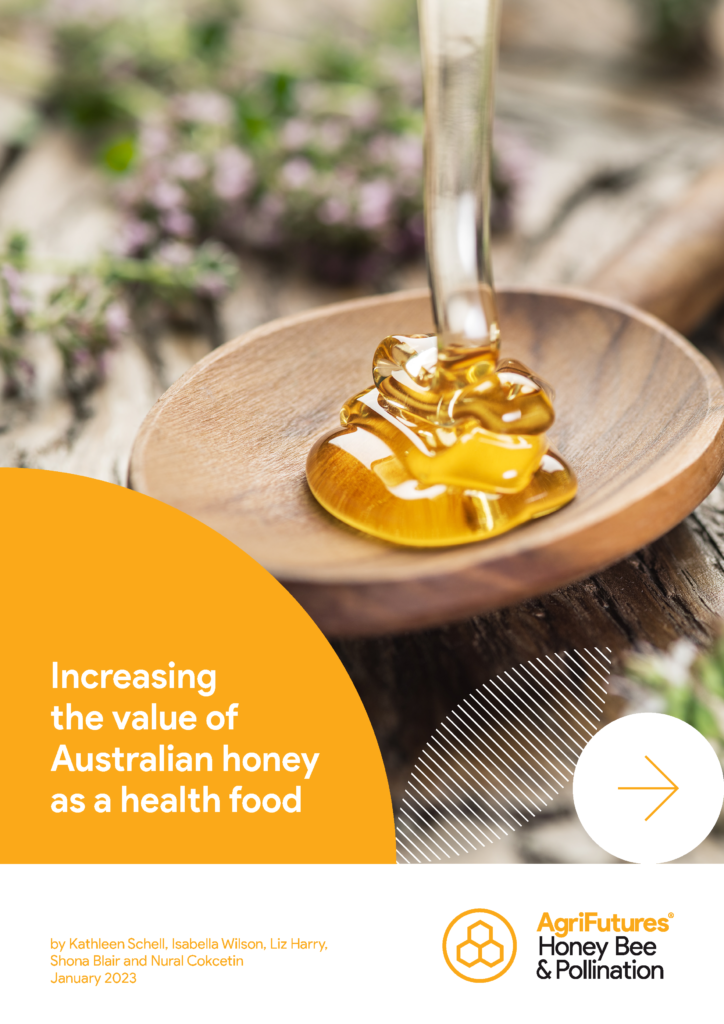AgriFutures Honey Bee & Pollination Program 2023 RD&E Snapshot
The AgriFutures Honey Bee & Pollination Program 2023 RD&E Snapshot documents the important research, development and extension projects completed and underway for the benefit of...
 HONEY BEE & POLLINATION
HONEY BEE & POLLINATION 
39 pages
Published: 27 Jun 2023
Author(s): Kathleen Schell, Isabella Wilson, Liz Harry, Shona Blair, Nural Cokcetin
ISBN: 978-1-76053-389-2
Download report PDF
DownloadPurchase a hard copy - AUD $50
Honey has a long history of use as a therapeutic, including as a tonic or supplement to promote good digestive health. The many therapeutic properties of honey are now scientifically well-established, including its antibacterial, anti-inflammatory, wound healing and antioxidant activity. Certain honeys are especially ‘bioactive’, and this has predominantly been linked to their floral source.
Australian commercial beekeepers produce more than 30,000 tonnes of honey each year from a variety of floral resources across Australia. Honey production takes place in most states and territories, with most production in the eastern states. Currently, about 70–80% of commercial honey produced in Australia is from eucalypt species, and this work aims to add value to the dominant floral varieties of honey by investigating their prebiotic potential.
The aim of this project was to provide evidence for the value of Australian honey as a prebiotic food that promotes digestive health. The anticipated outcomes are increased value, use and acceptance of our honey as a health product. This project undertook analysis of honey samples for antibacterial and inhibitory effects on gut bacteria, and then drilled down to understand the composition and levels of bioactive compounds. Impacts of honey samples on common gut pathogens sourced from healthy human donor stool samples and infection models were analysed.
This report shows that common Australian honeys – those collected and processed using standard beekeeping techniques – have prebiotic capacity and could be suitable to use to enhance gut health. Further research is required to understand the prebiotic activity of honey, including pre-clinical animal and human studies that investigate the effect of daily consumption on the gut microbiome. However, this project demonstrates there is scope to consider honey as a prebiotic. Further investigation is warranted to allow labelling of honey as an enhancer of gut health.